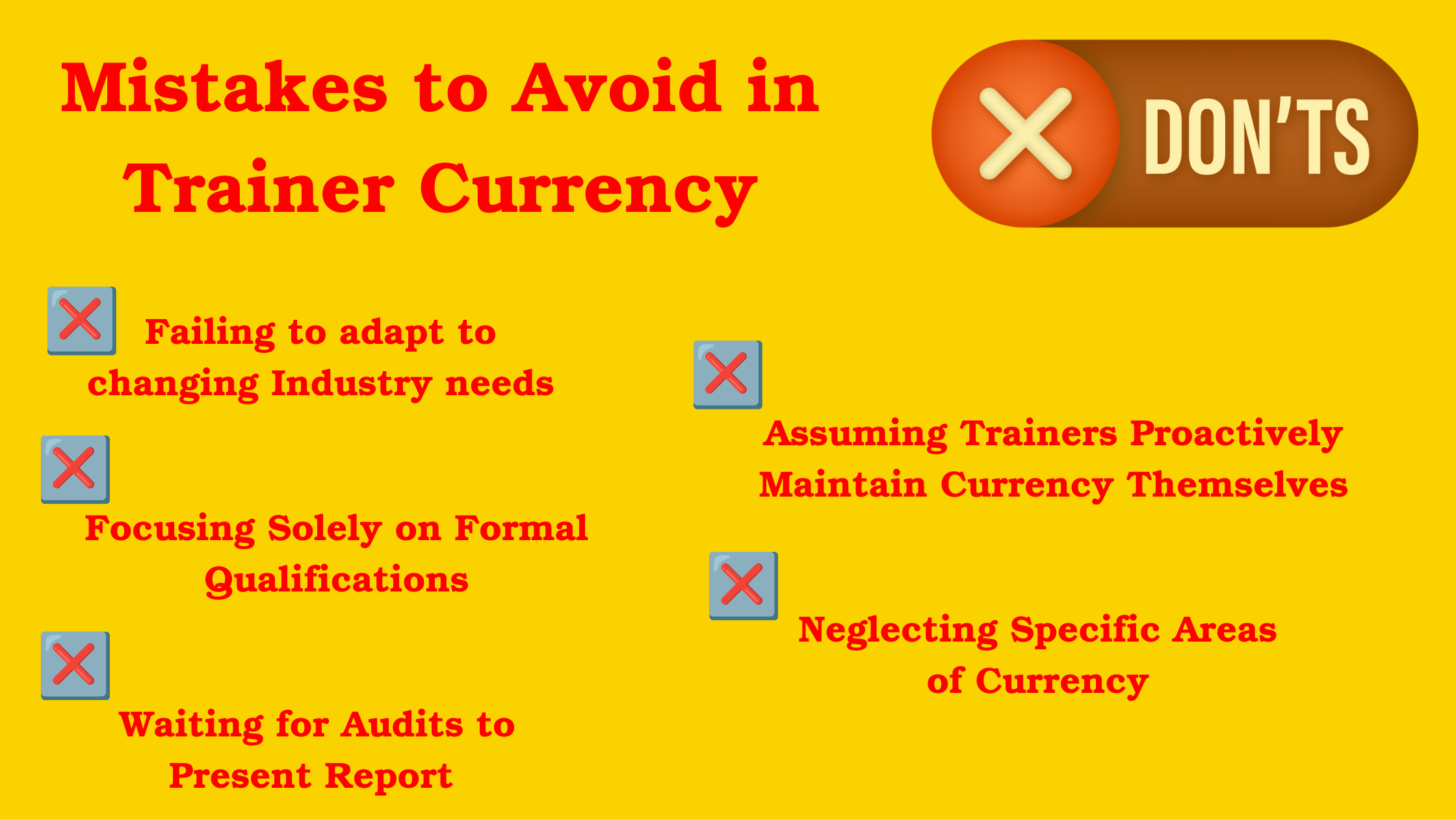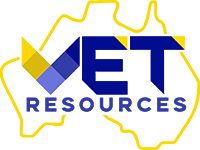In the rapidly growing VET industry, RTOs need to keep themselves informed and updated so that they can provide better training and education to students. One of the key responsibilities lies on Trainers who need to be up to date with the latest developments and practices in their field.
Trainer Currency refers to the relevance and effectiveness of a trainer’s skills, knowledge, and methods in their respective fields.
Here in this blog, we will try to explain a bit more about Trainer Currency, what is its importance, and what mistakes should be avoided in trainer currency.
What is Trainer Currency
Trainer currency refers to the ongoing capabilities of a Trainer to provide education and training that is relevant and updated. Trainers must be up to date with the latest developments and practices in their field, allowing them to deliver relevant training to students.
The purpose of trainer currency is to improve the quality of VET education and training by providing the most updated and relevant study materials.
Trainer Currency is important for RTOs to stay relevant while providing education to the students, ensuring they receive accurate and up-to-date information and skills.
Benefits of Trainer Currency

- Better outcomes: Providing relevant and updated training leads to better skills and employability for the students.
- Enhanced Reputation: Providing a better quality of education proves your commitment to quality and progressive path.
Mistakes to Avoid in Trainer Currency

RTOs should avoid the following mistakes while maintaining trainer currency:
- Assuming Trainers Proactively Maintain Currency Themselves
- Assuming trainers stay updated on industrial developments independently can lead to inconsistencies and knowledge gaps.
- This can be solved by implementing a system to monitor the trainer currency.
- This involves regular performance reviews, skill assessments, and professional development opportunities.
- Focusing Solely on Formal Qualifications
- Other than formal education, real-life experience, industry engagement, and continuous learning are also important parts of Trainer Currency.
- It will be helpful for RTOs to assess trainer currency that considers practical skills, industry knowledge, and recent learning activities.
- Neglecting Specific Areas of Currency
- The Trainer currency consists of a vocational education environment, specific industry knowledge, and training/assessment skills.
- Neglecting any of these areas can limit the effectiveness of the training program.
- Ensure that the development program addresses all three aspects and encourages trainers to take part in it.
- Failing to adapt to changing Industry needs
- Industries change very rapidly and to keep up with the changes, trainers need to adapt and stay ahead of the changes.
- Encouraging trainers to participate in learning programs and updating their skills and knowledge is a great way to keep up with the fast-changing industry scene.
- Waiting for Audits to Present Report
- Checking the trainer’s currency after the whole audit will prove to be inefficient and risky.
- Conducting regular assessments of the trainer’s currency is a viable option.
- This involves skill assessment, self-reporting of professional development activities, and ongoing monitoring of industry trends.
Conclusion
In the dynamic world of Vocational Education and Training, staying relevant is paramount. One crucial facet of this pursuit is Trainer Currency, ensuring instructors possess the current knowledge, skills, and methods to guide their students effectively. By avoiding the pitfalls discussed here, RTOs can cultivate a culture of continuous learning and development, where trainers thrive and students attain the most up-to-date skills, propelling them toward success in their chosen fields.
Remember, maintaining trainer currency is not a one-time effort, but rather an ongoing journey, a shared commitment to excellence that benefits both trainers and students in the ever-evolving landscape of VET.
So, embrace the process, prioritise proactive measures, and watch your training programs soar to new heights of relevance and effectiveness.
Want the highest quality training resources to maintain trainer currency?
If yes, VET Resources is your partner. We offer training resources that are designed and developed by industry experts and subject matter experts. For free samples and free consultations contact us here.
Frequently Asked Questions
What are some resources that can help VET providers maintain trainer currency?
There are several resources available to help VET providers maintain trainer currency, such as:
- Industry associations: Industry associations often offer professional development programs and resources for trainers.
- Government agencies: Government agencies may offer funding or support for trainer development programs.
- VET providers: Many VET providers offer professional development programs for their trainers, as well as for trainers from other organizations.
By maintaining trainer currency, VET providers can ensure that their programs are up-to-date, relevant, and effective. This will benefit both students and employers and help to ensure the long-term success of the VET sector.
Where can I learn more about Trainer Currency?
Several resources offer valuable information on trainer currency, including:
- The Australian Skills Quality Authority (ASQA): Provides guidelines and resources for RTOs on maintaining trainer and assessor currency.
- National VET Sector Training Packages: Outline industry standards and skills required for trainers in specific vocational areas.
- Professional development organizations and industry associations: Often offer courses, workshops, and conferences related to trainer currency in particular fields.
How can RTOs effectively maintain Trainer Currency?
RTOs can implement several strategies:
- Develop a comprehensive Trainer Currency policy: Outline clear expectations and procedures for maintaining currency.
- Provide ongoing professional development opportunities: Offer workshops, seminars, and training programs tailored to specific industries and trainer needs.
- Encourage industry engagement: Facilitate networking opportunities, industry visits, and collaborations with professionals.
- Utilise technology: Implement online learning platforms and resources to support continuous learning and knowledge sharing.
- Conduct regular assessments: Monitor progress through performance reviews, skills tests, and self-reported professional development activities.
Disclaimer:
The information presented on the VET Resources blog is for general guidance only. While we strive for accuracy, we cannot guarantee the completeness or timeliness of the information. VET Resources is not responsible for any errors or omissions, or for the results obtained from the use of this information. Always consult a professional for advice tailored to your circumstances.






